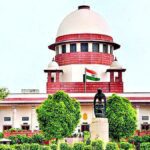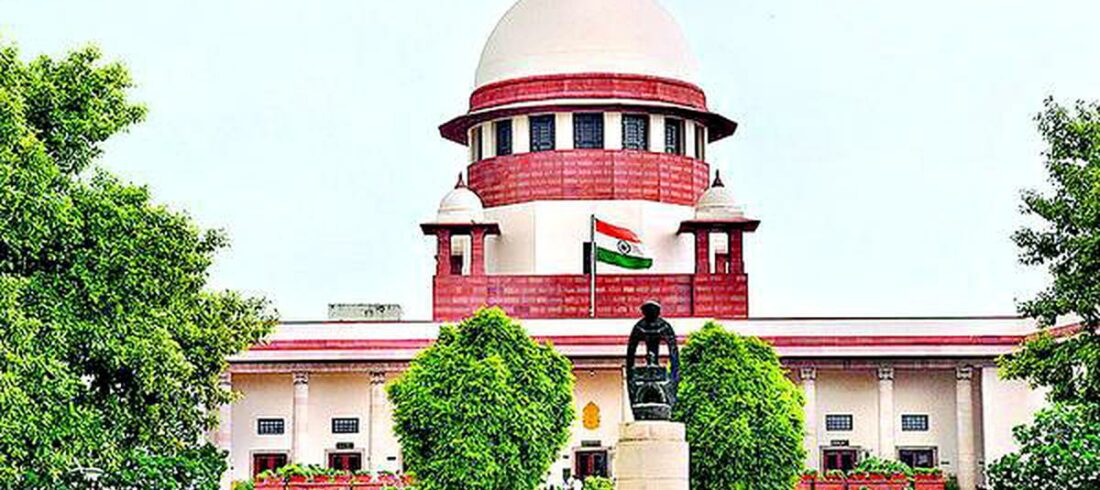According to the Bombay High Court, the location of the arbitration cannot be determined only by the fact that the arbitral ruling was signed there. It further said that if the parties have not reached an agreement on the location of the arbitration and the arbitrator has not chosen a location, the entire circumstances of the case must be taken into account in order to make a determination respecting the same.
A petition under Section 34 of the Arbitration and Conciliation Act, 1996 (A&C Act), which was contested on the grounds that the court lacked jurisdiction to consider the same, was being handled by the Justice Manish Pitale bench. The court noted that, as required by Section 20(1) of the A&C Act, there was insufficient evidence to demonstrate that the parties had reached an agreement about the location of the arbitration. In addition, the arbitrator may have done so in this circumstance in accordance with Section 20(2) of the A&C Act, but he did not.
Facts –
The Bombay High Court received a petition under Section 34 of the A&C Act from the petitioner and award debtor, Gurumahima Heights Co-operative Housing Society Ltd, contesting an arbitral decision made in the respondent’s favour, M/s. Admirecon Infrastructure Pvt Ltd. The petition’s maintainability was contested by the respondent, Admirecon, on the grounds that the High Court lacked jurisdiction to hear the case. It said that, with the exception of two sessions, every other hearing in the arbitration process had occurred in Navi Mumbai.
Additionally, it claimed that the petitioner-society’s building, for which the respondent was given the contract, was likewise located in Navi Mumbai. It further said that the petition should have been submitted before the same Thane court that received the application under Section 9 of the A&C Act, in accordance with Section 42 of the A&C Act.
In response, the petitioner organisation claimed that Mumbai was listed as the date and location of the arbitral decision that was signed by the arbiter. Mumbai served as the site of both the arbitration hearings and the award, making the Bombay High Court competent to hear the Section 34 case.
Judgment and Analysis –
The High Court noted that under Section 20 of the A&C Act, the parties are free to agree on the location of the arbitration; in the absence of such an agreement, the arbitral tribunal selects the location, taking into account the particulars of the case and the convenience of the parties. According to Section 20, the arbitral tribunal may convene wherever it deems suitable, and this location has been referred to as the “venue” of the arbitration.
The court alone has jurisdiction over the arbitral proceedings and all subsequent applications arising out of such agreements and the arbitral proceedings, according to Section 42 of the A&C Act, which is further reckoned to start with a non-obstante clause when an application under Part I of the A&C Act is filed in a court in relation to an arbitration agreement. Furthermore, it clearly states that only this court has jurisdiction.
In the case of Omprakash S/o. Ramnivas Varma (2020), the Bombay High Court was handling a case in which there was no evidence of a venue of arbitration that had been mutually agreed upon and in which the arbitrator had not chosen a location. In such a case, the court had ruled that the parties’ actions might also be taken into consideration when deciding or ascertaining the location of the arbitration, which would then help determine which court would have jurisdiction to hear the dispute under Section 34.
The bench noted that the relevant articles in the contract signed by the parties did not name a location for arbitration or grant any specific court exclusive jurisdiction. “Clause 5 of the Articles of Agreement / Contract states that Navi Mumbai shall be the venue for any disputes between the parties. This can be regarded as a relevant consideration, but, as the court pointed out, the respondent did not make use of this particular clause while the parties were in the arbitration process.
According to the analysis of the case’s facts, the aforementioned pertinent considerations point at least to one conclusion that there is a lack of evidence demonstrating that the parties have reached an agreement about the location of the arbitration, as required by Section 20(1) of the aforementioned Act. The learned arbitrator might have chosen the location of the arbitration in this case under Section 20(2) of the aforementioned Act. However, a review of the arbitral verdict reveals no evidence of the learned arbitrator making a decision on the location of the arbitration.
The court ruled that the fact that the arbitral decision stated that it was issued in Mumbai cannot be used as evidence to determine that Mumbai was the proper location for the arbitration under the circumstances. This is due to the court’s ruling that the location of the arbitration cannot be determined only by the fact that the award was signed there. It further said that if the parties have not reached an agreement on the location of the arbitration and the arbitrator has not chosen a location, the total circumstances must be taken into account in order to make a decision on the aforementioned issue.
Referring to the case’s circumstances, the judges noted that Navi Mumbai hosted 22 of the 24 hearings for the arbitration. Additionally, the petitioner’s society’s building, for which the respondent received the contract, was situated in Navi Mumbai. Furthermore, the respondent filed a Section 9 application with the Thane court. In this case, it cannot be said that no part of the cause of action arose within the jurisdiction of Court at Thane. It is acknowledged that the respondent did submit an application to the Thane court under Section 9 of the aforementioned Act. Thus, the bench concluded that the court at Thane alone had the jurisdiction to entertain the Section 34 petition.






